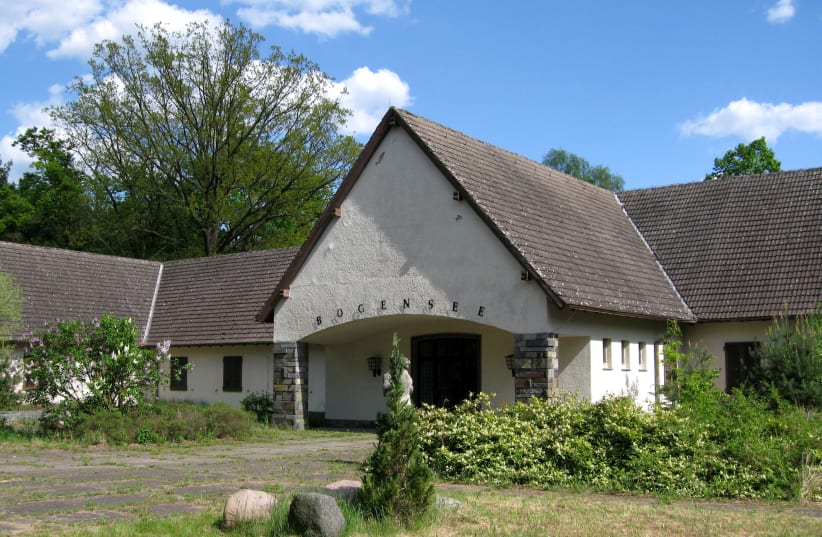An abandoned country house near Berlin, which used to belong to the infamous Nazi regime's Minister of Propaganda, Joseph Goebbels, is currently in talks to be converted into a commune for artists and the disadvantaged, which will feature a "museum of tolerance," the monthly London-based art magazine The Art Newspaper reported last month.
The land, located at Bogensee - around 15 miles north of Berlin's center - was gifted to Goebbels by Hitler in 1936. There, Goebbels built a sprawling, 70-room complex, complete with a private cinema, bunker and SS barracks.
The construction was co-financed by the German film company UFA, which was a major tool for spreading hateful, fascist and antisemitic Nazi propaganda.
Historians claim the location as the site where Goebbels had several extra-marital affairs with young actresses, including Czech film star Lida Baarova, before moving his family into the house.
In 1943, Goebbels wrote his notorious "Total War" speech at the Bogensee House, wherein he urged the citizens of Nazi Germany to continue fighting the war, despite the the fact that the tides of war had turned against them.
After Goebbels killed his wife and six children and committed suicide, the complex fell to East German control. It was expanded during the Stalinist era and served as a youth college during the majority of the Cold War.
Since the reunification of Germany, the complex has fallen to disuse, with the Berlin municipality failing to sell the property due to its troubling history and high maintenance costs, estimated by local media to be around €230,000 every year.
That is, until the non-profit, co-operative group LKC Bogensee (Life & Creativity Bogensee Campus) proposed converting the complex into a model eco-village, which is planned to feature a "tolerance museum," a theater, multiple sculptor and artisan workshops, a vegan restaurant, non-profit supermarket, homeopathic health center, along with a communal living complex for around 250 people, with priority given to the societally disadvantaged, with an emphasis on immigrants and the disabled.
Das Kulturhaus ist nun ganz eingerüstet und am Lektionsgebäude geht es los! Leider wurden diese Arbeiten nicht schon in den letzten Jahren ausgeführt.Ein Dank geht an dieser Stelle an den Landeskonservator von Brandenburg, der hier tatkräftig mit eingewirkt hat.#BLDAM pic.twitter.com/GsHyOD5bfU
— LKC Bogensee (@LBogensee) February 10, 2021
According to a statement by the group, the museum's mission is to deal with the history of the site's "two totalitarian regimes," while also preventing the building from becoming a "historical revisionist pilgrimage site" for neo-Nazis.
While Berlin politicians have considered demolishing the complex in recent years, talks are now underway between the LKC Bogensee group and Berlin authorities to consider the initiative, so long as the project can be completed in a time frame of under ten years, The Art Newspaper reported in February.
The group plans on funding the project through a mix of crowdfunding and private funds.
According a report published on Friday by the UK's Daily Mail, they are already in discussion with a local renewable power company, Barnim Energie, about supporting the plans.
